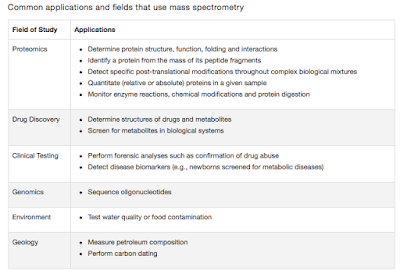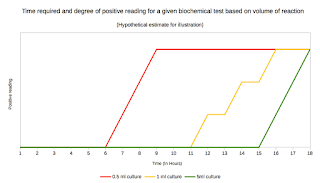Blogger's Desk #3- Science awareness
More recently I have discovered from the internet that there is a great set of misinformation and lack of understanding of science, how it works and what makes it important. As a person into the science myself, I see deep problems with this. So I decided I could set up a survey and try to find some answers. The survey respondent has been far less than I expected it to be. I also talked about it to people who are not in science and tried to mine some additional data.
The most striking feature that I found from the response is what does research mean? There was a universal agreement that science enhances our understanding of basic process and has enhanced our capabilities. More than a 50% declined to comment on a difference between Translational and basic research. Rest agreed that basic leads to translation. In reality there is no such thing as basic and translation. It’s a product of the highly competitive funding system (Link).
 |
| Fig 1: Preferred mode in updating and searching for literature |
On an average the active researchers looking for science papers and materials, search and update their literature once in 3.20 days. That seems fine, till you see that majority of them use “Simple Google” approach. About 38% read review articles and almost 0.72% read original articles. And the big blow, a great deal of people agreed that the soundness of work was determined by the journal in which it has been published. It was found that majority of them don’t understand the article to a large degree; forget about critically evaluating the paper. For finding research paper of interest, PubMed followed by Google was the choice. I had expected that.
Towards science communication, there is quite a mixed signal. There was equal distribution in terms of how feasible was it to explain their science to layman and should scientists communicate more? Striking enough, too few people listen to materials such as podcast by journals such as Nature, Cell, Lancet, Science, NEJM etc. Some even don’t know they exist. In fact the aim of the podcast is simplifying the material, how far is the goal met, debatable. No wonder, “Google” is the choice. And I’m talking about one’s in science.
A chief complaint by majority of the researchers is that the published work is not available to read and you have to pay for individual papers. That forms the chief drive for Open access publications. But when asked if the paper is submitted to archives, very few agreed that they do in sites such as Academia.edu, arXiv, biorxiv or personal websites. A majority doesn't know it is legal to submit papers to repositories and a few denied they want to. Archiving should enable access to papers.
The story is quite different from others perspective. Google is almost exclusively used for finding anything they want to know. They avoid reading scientific papers and rely heavily on news reports or webpages that looks promising (not necessarily true information). Their major problem is that scientists don’t communicate in an understandable layman language. Except when there is a ground breaking emergency or issue there is virtually no communication by the scientists to general public. Oh yes, most are not aware of authentic materials out there on web for general public, which attempts to communicate.
 |
| Box 1: The scenario. |
The Box 1 is a depiction of the current science communication reality. I can quote an example. When scientists decided that they want to do an experiment to study H7N9 the hype of gain of function was needed to be addressed to public. Instead it was in a high tier journal (Link). Press picked up on it, and the tables turned around the wrong way. Some argued that scientists plan secretly and not open enough with public. Though the intention was to communicate and not cover the problem, the mode of doing it actually brought in mistrust. As said by Adel A. F. "The scientific justification presented for doing this work is very flimsy, to put it mildly, and the claims that it will lead to anything useful are lightweight”. People including scientists forgot what Gain of function and DURC is all about.
Second, even the science specialists themselves have a problem. The most frequently encountered is the “authenticity in communication”. For example, when scientist say there is a “probability X that event Y will happen”, it sounds less authentic than media hyping, “Scientists claim they found Y will happen”. Even if the reader gets back to original paper and tries to understand it, chances are (Probability!!!) he won’t understand a word. As I have already shown relatively inexperienced scientists can find it difficult to understand modern complex high impact factor papers.
 The original idea of scientific papers was to communicate science. Science had just started growing up and hence wasn't complex, easily understood. Today in journals like Nature, a original publication is a distillation of years of hard core science for years sometimes condensed into less than 4-5 pages. Naturally, a detail that seems to be universally known is not inked in. And here’s the catch. When you are at the very peak of knowledge, details that seem to be very complex can be perceived by you as a obvious fact. For others it isn't, and needs explanation. This phenomenon is called as “Knowledge paradox”. The resulting output is a very complex paper. The idea of abstract or author’s summary is supposed to curb this problem. However, the growing complexity of science literature makes this problem worse. Journal such as Elife aims to publish as much detail as possible. Such approach may alleviate the problem.
The original idea of scientific papers was to communicate science. Science had just started growing up and hence wasn't complex, easily understood. Today in journals like Nature, a original publication is a distillation of years of hard core science for years sometimes condensed into less than 4-5 pages. Naturally, a detail that seems to be universally known is not inked in. And here’s the catch. When you are at the very peak of knowledge, details that seem to be very complex can be perceived by you as a obvious fact. For others it isn't, and needs explanation. This phenomenon is called as “Knowledge paradox”. The resulting output is a very complex paper. The idea of abstract or author’s summary is supposed to curb this problem. However, the growing complexity of science literature makes this problem worse. Journal such as Elife aims to publish as much detail as possible. Such approach may alleviate the problem.
I by no means am discrediting the hard work of scientists nor does the public. The point is science understanding is currently low. In the ages of booming of physics, there used to be public lectures for the lay audience. In the newer age Podcasts and science shows could lead similar way.
Your opinion and thoughts?





Comments
Post a Comment